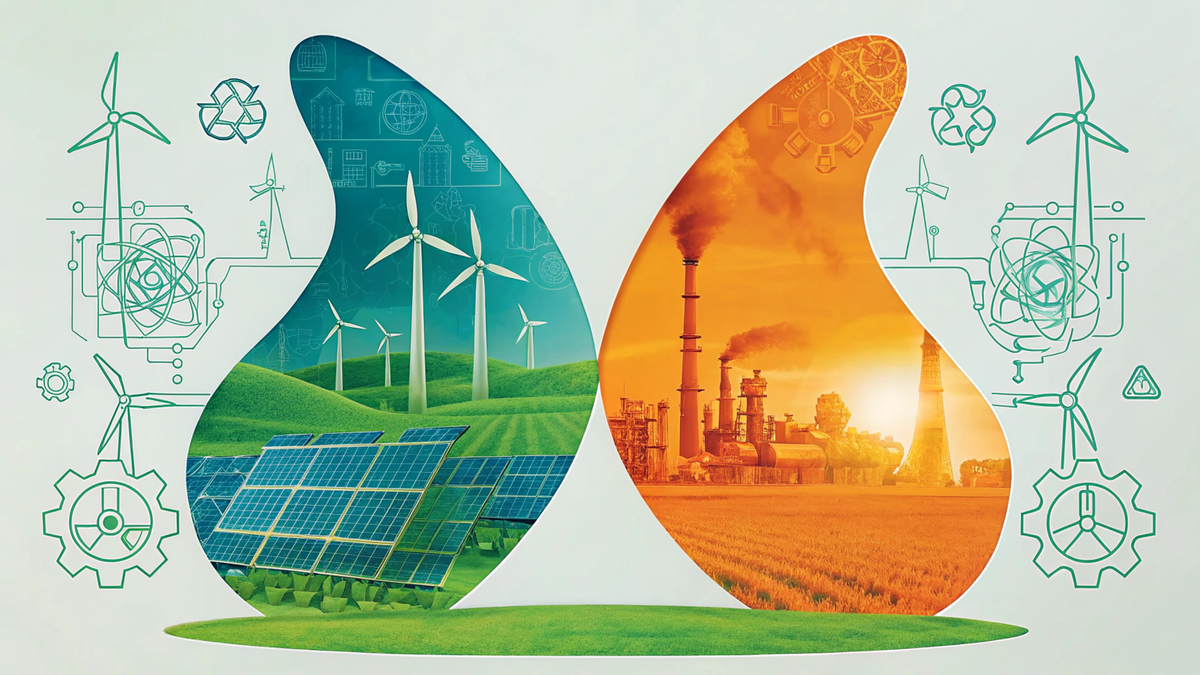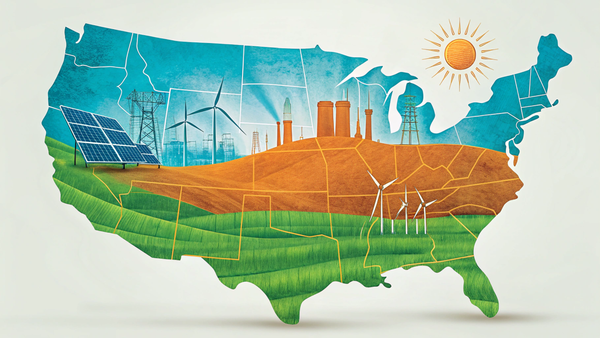A Fork in the Road: Impacts of Federal Policy Repeal on the U.S. Energy Transition
Princeton and EER's most recent REPEAT Project report analyzes a potential repeal of current federal energy and climate policies, presenting a bleak outlook of significant increases to greenhouse gas emissions and energy costs.

Introduction
The latest REPEAT Project report, authored by Princeton University's ZERO Lab and Evolved Energy Research, analyzes the potential consequences for the U.S. energy transition if current federal energy and climate policies were repealed. The findings indicate that a Full Repeal scenario would lead to significant increases in greenhouse gas emissions and energy costs for households and businesses, while also curtailing investment in clean energy, electric vehicle sales, and domestic battery manufacturing.
Methods
The study uses macro-energy system optimization modeling to simulate the U.S. energy system evolution under different policy pathways, incorporating spatial and sectoral resolution, fuel use, technology adoption, and investment behavior. The authors evaluated four main scenarios:
- Continued Policies (existing legislation and regulations remain in place)
- Executive Repeal (executive actions undo regulations and freeze funding)
- Full Repeal (complete elimination of tax incentives along with executive actions)
- Net-Zero Benchmark (included for context to reflect a transition to net-zero emissions across the U.S. economy by 2050)
Results
1. Energy Cost Burden
Consumers and businesses face steep cost increases with annual energy expenditures rising by $25 billion in 2030 and over $50 billion in 2035 under Full Repeal. Household energy bills increase by $270–$415 per home each year by 2035, and retail electricity rates rise by ~9% nationally—and up to 17% in deregulated states like Texas and Pennsylvania.
2. Investment Collapse
Full Repeal halts U.S. momentum in clean energy deployment. Capital investment in clean power and fuels declines by $1 trillion from 2025–2035 and $522 billion in announced but not-yet-built projects are jeopardized, particularly in battery and EV manufacturing.
3. Rising Emissions
Repealing clean energy policies significantly increases greenhouse gas emissions. Full Repeal results in over 1 billion metric tons more emissions annually by 2035 compared to Continued Policies, and nearly doubles emissions compared to a Net-Zero pathway. Executive Repeal alone increases emissions by 0.5 billion metric tons in 2030 with transportation, industry, and power sectors seeing the sharpest increases in emissions.
4. Emerging Sectors Stalled
Full Repeal erodes support for nascent clean energy industries. The hydrogen sector collapses without the 45V production credit and CO₂ capture and storage fail to scale absent the 45Q incentive. The EV transition slows dramatically; Annual EV sales drop by 40% in 2030 under Full Repeal and U.S. battery manufacturing overcapacity could hit 72%, risking plant closures and layoffs.
Discussion
This analysis arrives as Congress considers a budget bill that proposes a broad repeal of clean energy tax credits and infrastructure investments enacted over the past several years. The modeling shows that eliminating these policies could reshape the U.S. energy landscape—raising emissions by over a billion tons annually, driving up consumer energy costs, and halting capital investment in clean technology. The ramifications stretch beyond the federal level: state policy goals, private sector roadmaps, and utility investment strategies have been built with these incentives in mind. Their sudden removal would leave gaps that neither markets nor state action can fully bridge on short notice.
While the bill’s final form remains uncertain, what recently passed the house is effectively the Full Repeal scenario analyzed here. Hopefully this analysis offers a critical lens for understanding its potential impacts.
Resources:
Princeton Professor and lead author on the report, Jesse Jenkins, delves into these results in the latest Shift Key Podcast episode, which he co-hosts with Heatmap News's Robinson Meyer.
New York Times article from June 20, 2025, where the REPEAT Project is cited and its implications discussed.







